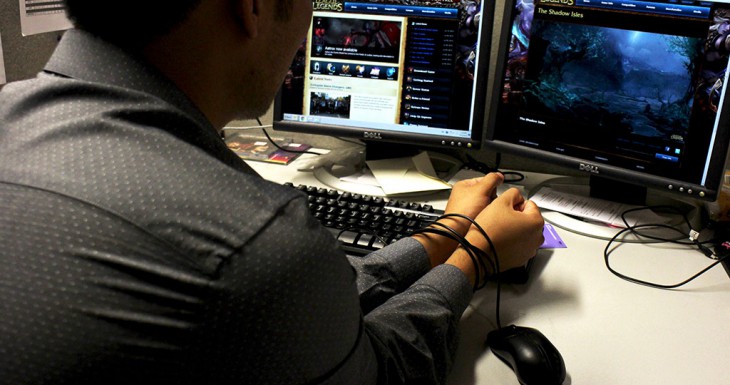
Jacob, age 17, stayed alone in his room for several days in a row. He was on his computer for hours on end, so much so that he was missing school. Schoolwork was hard for him; he had emigrated from Korea five years earlier, and struggled because of his language barrier. He was getting angry easily, and was having a hard time regulating his screen time.
Jacob came in to KYCC’s Clinical Services unit displaying the hallmark signs of Internet addiction. It is described as excessive computer use that interferes with daily life. KYCC has seen an increase each year in service requests for children and adolescents facing Internet addiction. Many of these teens also show signs of pornography addiction.
“It’s about the impairment on other areas of their life,” explains Nayon Kang, Clinical Services Manager. “They are up all night playing computer games, so they can’t get up and then they miss their job or school. It’s the cost of real relationships outside of the computer, if their social life is more online than in real life.”
Some signs of internet addiction:
- Thinking about going on the computer often
- Feeling good when on the computer
- Needing more and more time on the Internet
- Feeling agitated when not online
- Falling back to internet addiction despite efforts to stay away
For many, Internet addiction is an accessible escape from reality. Children and adolescents are especially susceptible as they have less developed coping strategies to deal with stressors, such as problems at home or school, boredom, depression, trauma, or social anxiety.
“This is a complex issue,” explains Clinical Supervisor Yun Pak. “It’s not only about computer addiction—but also about parenting and possible underlying diagnoses such as ADHD. When we work with youth and the family, we not only address the Internet addiction, but all other related problems.”
Clinical Services encourages early intervention if you know someone displaying these symptoms of addiction, and to seek professional help. In addition, it is encouraged if working with school-aged children to work in concert with the school, because some issues might reveal the need for special education.
For more information, contact Clinical Services Manager Nayon Kang at (213) 365-7400 ext. 5530 or email nkang@kyccla.org.